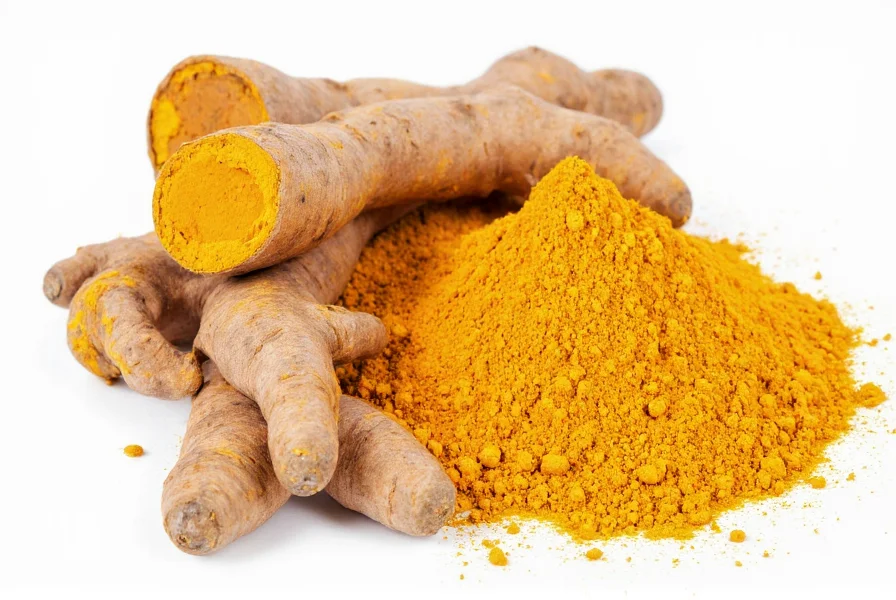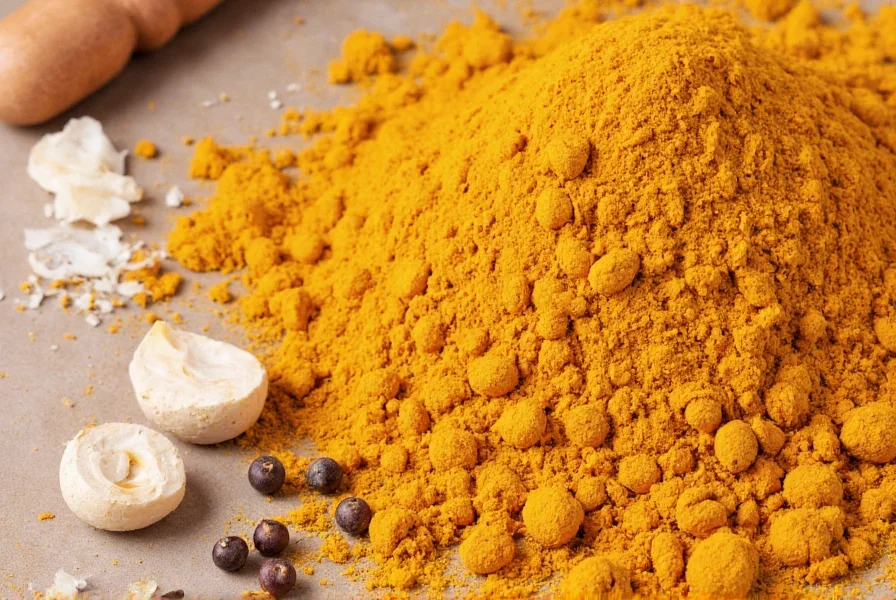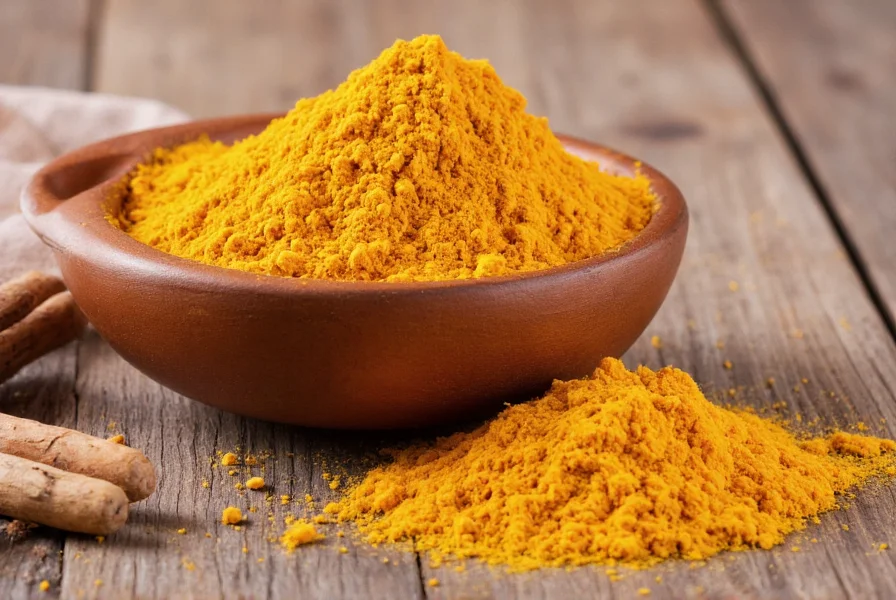Curcumin, the primary bioactive compound in turmeric, has gained significant attention for its potential health benefits. Understanding the appropriate daily intake is crucial for maximizing benefits while maintaining safety. This guide examines evidence-based recommendations for turmeric consumption across different contexts.
Understanding Turmeric Composition and Bioavailability
Turmeric contains approximately 2-8% curcumin by weight, meaning that 1 teaspoon (about 2 grams) of turmeric powder provides roughly 40-160 mg of curcumin. This low concentration explains why therapeutic applications often require standardized extracts. Curcumin's poor bioavailability presents another challenge—its absorption increases significantly when combined with black pepper (containing piperine) or healthy fats.

Evidence-Based Daily Dosage Guidelines
Research indicates different optimal doses depending on your purpose for taking turmeric. The following recommendations reflect current scientific understanding:
| Purpose | Recommended Daily Dose | Duration |
|---|---|---|
| General wellness | 1-3 grams turmeric powder or 500 mg curcumin extract | Long-term |
| Inflammation management | 500-1,500 mg curcumin extract (standardized to 95% curcuminoids) | 8-12 weeks |
| Joint health support | 1,000 mg curcumin extract twice daily | 4-12 weeks |
| Culinary use | 1-3 grams turmeric powder in cooking | Ongoing |
Safety Considerations and Maximum Limits
While turmeric is generally safe at culinary doses, higher therapeutic doses require caution. The European Food Safety Authority established an acceptable daily intake of 0.13 mg per pound (0.3 mg/kg) of body weight for curcumin. For a 150-pound person, this equals approximately 200 mg of curcumin daily.
Studies using higher doses (up to 8,000 mg of curcumin daily) for short periods showed no serious adverse effects, but long-term safety at these levels remains uncertain. Most experts recommend not exceeding 2,000 mg of curcumin daily without medical supervision.
Factors Influencing Optimal Turmeric Dosage
Your ideal turmeric daily dose depends on several factors:
- Form of turmeric: Powder contains only 2-8% curcumin, while standardized extracts typically contain 95% curcuminoids
- Bioavailability enhancers: Formulations with piperine (from black pepper) or lipids increase absorption by up to 2,000%
- Health status: Certain conditions like gallbladder issues may require lower doses
- Medication interactions: Turmeric may interact with blood thinners and diabetes medications
- Age and weight: Dosage may need adjustment for children, elderly, or individuals with lower body weight
Maximizing Turmeric Absorption
To enhance the effectiveness of your turmeric daily dose:
- Combine with black pepper: Just 20 mg of piperine significantly boosts curcumin absorption
- Take with healthy fats: Curcumin is fat-soluble, so consume with avocado, olive oil, or coconut oil
- Consider specialized formulations: Look for products using phytosome technology or nanoparticle delivery systems
- Space doses throughout the day: Multiple smaller doses may maintain more consistent blood levels

Potential Side Effects of Excessive Consumption
While turmeric is safe for most people at recommended doses, excessive consumption may cause:
- Digestive issues like nausea, diarrhea, or acid reflux
- Increased risk of bleeding, especially when combined with blood-thinning medications
- Lowered blood sugar levels, problematic for diabetes patients
- Interference with iron absorption in susceptible individuals
- Rare cases of allergic reactions or skin rash
Individuals with gallstones, bile duct obstruction, or bleeding disorders should avoid high-dose turmeric supplementation without medical guidance. Pregnant and breastfeeding women should consult their healthcare provider before taking turmeric supplements.
When to Consult a Healthcare Professional
Before establishing your regular turmeric daily dose, consult a healthcare provider if you:
- Take blood thinners, diabetes medications, or acid-reducing drugs
- Have a history of kidney stones (turmeric contains oxalates)
- Are scheduled for surgery within the next two weeks
- Have hormone-sensitive conditions
- Experience persistent digestive discomfort after turmeric consumption
Healthcare providers can help determine the appropriate turmeric dosage for your specific health needs and monitor for potential interactions with your current treatment plan.
Conclusion
Finding the right turmeric daily dose involves balancing potential benefits with safety considerations. For general wellness, culinary use of 1-3 grams of turmeric powder provides safe, moderate benefits. Those seeking therapeutic effects should consider standardized curcumin extracts at 500-1,500 mg daily, preferably formulated for enhanced absorption. Remember that individual responses vary, so start with lower doses and gradually increase while monitoring your body's response. Always prioritize quality sources and consult healthcare professionals when using turmeric for specific health concerns.
Frequently Asked Questions
What is the maximum safe daily dose of turmeric?
For culinary use, up to 3 grams of turmeric powder daily is generally considered safe for most adults. For therapeutic supplementation, most studies use 500-1,500 mg of standardized curcumin extract daily. While short-term studies have used doses up to 8,000 mg without serious side effects, long-term safety at these levels is unknown. The European Food Safety Authority recommends not exceeding 0.3 mg of curcumin per kilogram of body weight daily for regular consumption.
Can I take turmeric every day long-term?
Yes, turmeric can be safely consumed daily at culinary doses (1-3 grams of powder). For therapeutic supplementation with curcumin extracts, most research supports daily use for 8-12 weeks, but long-term daily use beyond one year hasn't been extensively studied. Many people safely use moderate doses (500-1,000 mg curcumin) daily for extended periods, but periodic breaks or cycling usage may be prudent. Always consult your healthcare provider for personalized advice regarding long-term supplementation.
How much turmeric should I take for inflammation?
For inflammation management, research suggests 500-1,500 mg of standardized curcumin extract (containing 95% curcuminoids) taken once or twice daily. These doses have shown effectiveness in multiple studies for reducing inflammatory markers. Since curcumin has poor bioavailability, look for formulations enhanced with piperine (from black pepper) or delivered in lipid-based systems, which can increase absorption by up to 2,000%. Effects typically become noticeable after 4-8 weeks of consistent use.
Is 1 teaspoon of turmeric a day enough?
One teaspoon (about 2 grams) of turmeric powder provides approximately 40-160 mg of curcumin, depending on the turmeric's quality. This amount is sufficient for general wellness and culinary use, offering antioxidant benefits and mild anti-inflammatory effects. However, for therapeutic purposes like managing significant inflammation or joint pain, this amount may be insufficient since most clinical studies use much higher curcumin concentrations (500-1,500 mg). Consider this dose appropriate for maintenance but potentially inadequate for addressing specific health concerns.
What happens if I take too much turmeric daily?
Excessive turmeric consumption can cause digestive issues like nausea, diarrhea, or acid reflux. Very high doses may increase bleeding risk, especially when combined with blood-thinning medications. Turmeric can also lower blood sugar levels, which might be problematic for diabetes patients. Long-term excessive intake could potentially contribute to kidney stone formation due to turmeric's oxalate content. While serious adverse effects are rare at typical supplemental doses, exceeding 8,000 mg of curcumin daily is not recommended without medical supervision.











 浙公网安备
33010002000092号
浙公网安备
33010002000092号 浙B2-20120091-4
浙B2-20120091-4